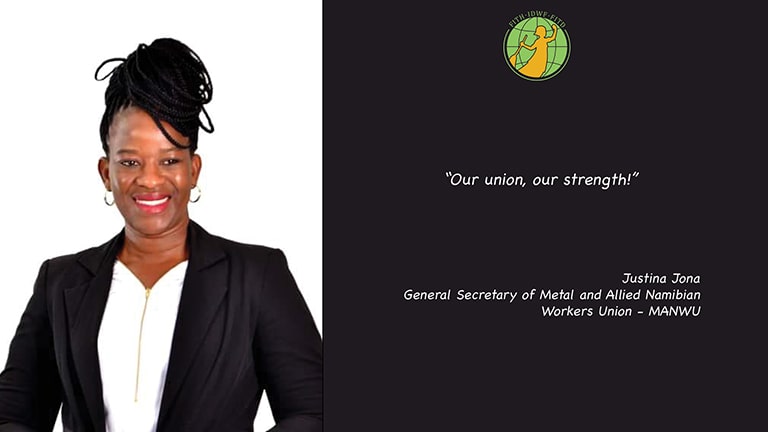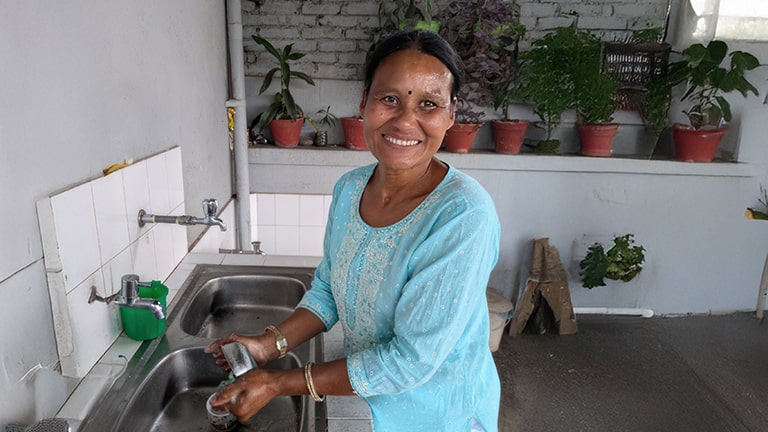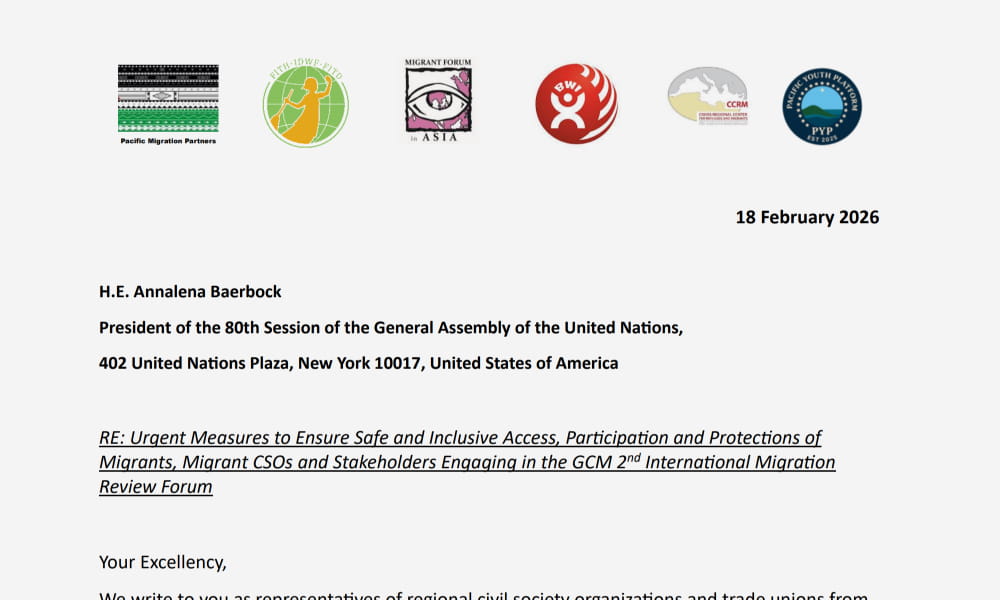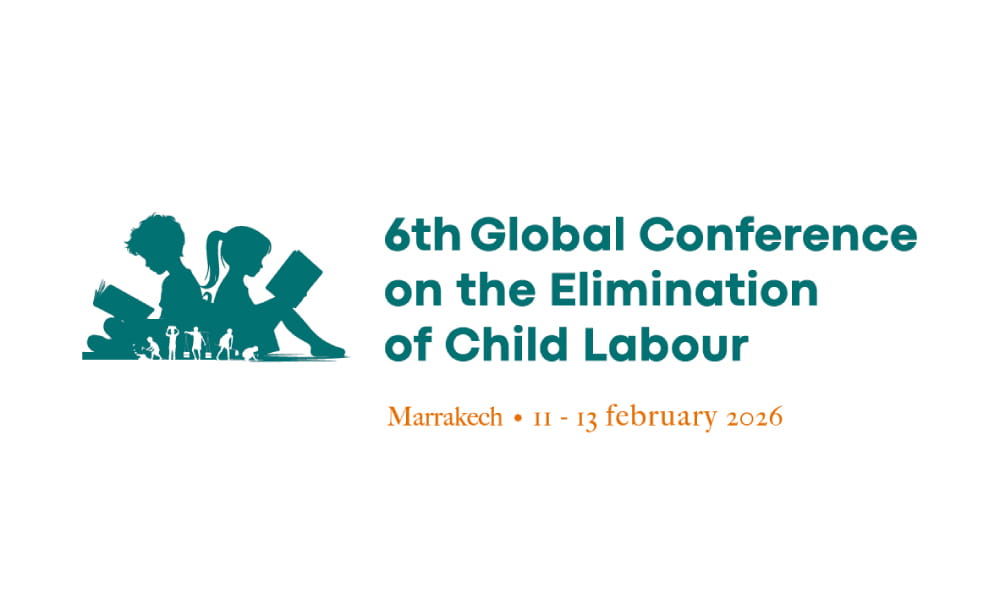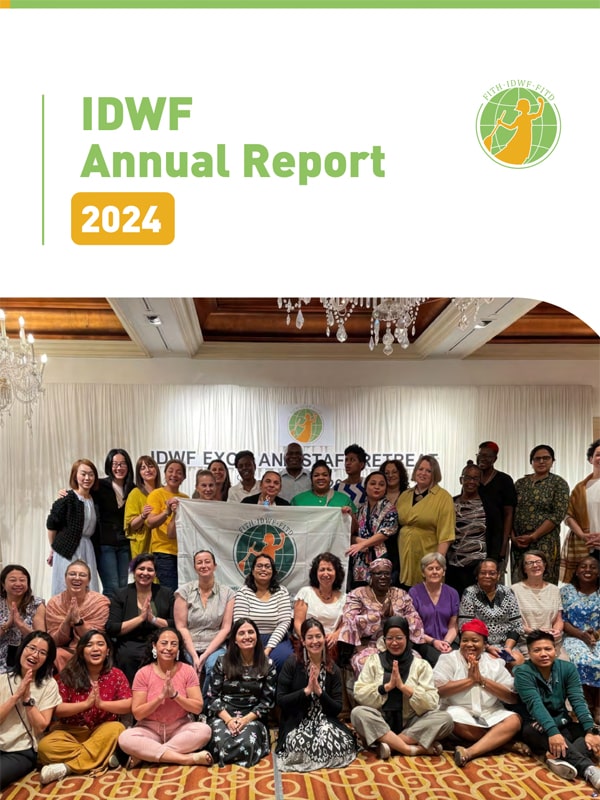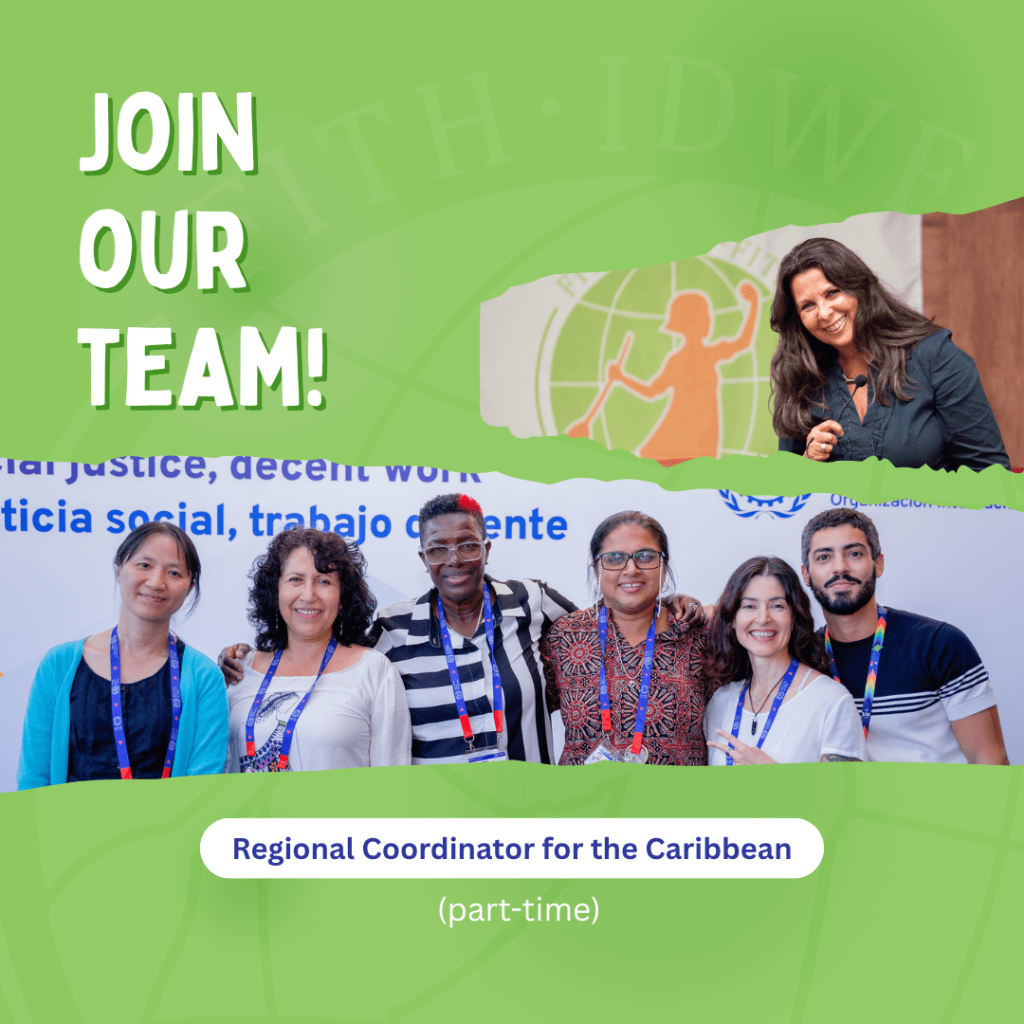On the International Day to Eradicate Poverty, we spoke to unionists and domestic worker leaders on their insights of how poverty affects the sector of domestic work and how women bear its disproportionate burden. Full of power, these leaders envisioned a more equitable world, with decent work for domestic workers, free of economic and gendered violence. Hear their voices!
Details
Namibia –
Roula: Today, I am speaking with Justina Jonas, who is the General Secretary of the Metal and Allied Namibian Workers Union (MANWU), one of the sister unions with whom we work closely. On the International Day for the Eradication of Poverty, we would like to join our voices to think of workers left in poverty and without protections. These workers are often women.
Justina: Yes. Many women workers are struggling, and we need to be making progress on the activities to protect the workers on a national level, which is my interest.
R: And with Namibia that yet has to ratify the ILO Domestic Workers Convention 189 and the Violence and Harassment in the World of Work Convention 190, the workers are vulnerable, especially with the additional difficulties brought about by COVID-19.
J: I think what we need to first understand is that being a domestic worker means that you are exposed to so many different forms of violence at your workplace. I represent the construction workers within our unions, and they have cleaners who come and work at their accommodations. But I see both populations as one: domestic workers and construction workers who are exposed to various forms of violence and risks within their workplace.
The two ILO Conventions, C189 and C190 need to stick to each other for change to be made in domestic work but also in other sectors. Namibia has pronounced itself to ratify these two conventions. We are told that the process is ongoing, despite the struggles of this period, and our sister union, Namibia Domestic and Allied Workers Union (NDAWU) has been following up on the matter, as C189 is one of the conventions that the government should ratify. At the end of the day, the vulnerability of this group of workers needs to be addressed one way or the other, because as much as we do on an internal level, we would need a legal framework to support our ongoing efforts. We are also informed that the current labor law in Namibia is under review and that it is becoming closer to the convention albeit the convention is not ratified yet. I consider this to be an indicator that change is being made towards the right direction and that raising awareness about these conventions is mandatory to ensure a proper access to labor rights.
R: In the context of your unionizing efforts outside of the legal reforms, how do you fight Gender-Based Violence (GBV)? Do you see it manifesting in the world of work?
J: The convention C190 has a particular focus on sexual harassment and I would like to focus on that too, as this form of violence and harassment is too often unspoken for many reasons. It is important to understand that sexual harassment and sexual actions in general are a taboo topic that is treated as if it should not be discussed within Black communities out here. I am speaking specifically about the upbringing that we receive as women, which tells us that if someone humiliated or harassed us, we need to take shame which makes it exceedingly difficult to speak out. In confined spaces like households, most workers are women. Domestic workers are mostly women. It is difficult to report an employer who has violated your rights when you are confined.
The other issue contributing to the increased gender-based violence and the inability to report is poverty and unemployment. For example, in Namibia, a woman would continue working with the employer even if she is unhappy, because of the increasing unemployment and the fact that she cannot afford to leave her job. In these cases, she would just consider the abuse and harassment to be a hardship of life or of the profession. We have been trying to counter this on a union level through the workshops and conferences we do. We have been speaking about domestic violence among ourselves. We had a conference about sexual harassment with our membership and we have invited experts to speak with us about what constitutes it and how to report it. We even had security officers from the police come to us and to talk to us about the procedures that take place to combat sexual harassment. In addition to that, last year, on women’s day, we held a conference on gender-based violence focused on the killing of women by their partners. We have been raising awareness but there has not been a lot of disclosure or “coming out” with the stories of harassment. The issue is also related to our legislation: can our legislation ensure that there are anonymous ways of reporting, that someone can go and disclose her story on sexual harassment?
R: So, it is not sufficient to be raising awareness about gender-based violence when the mechanisms in place are not considerate of the barriers to access to reporting and legal measures. These barriers are not only related to the economic status of the worker, but also are very much related to her gender. Is that what you mean?
J: Maybe one thing that we need to understand, and which is important, is that women by birth are born into a discriminatory setting. When we are born on this earth, we are already vulnerable. And society makes us believe that it is because of who we are or the way we are. In Namibia, the colonial structural setup has also contributed to the issue. So, we are facing discrimination in the workplaces just because we are women. We are not paid equally as men, and we have more responsibilities and various labor to perform officially and unofficially. And it is linked to poverty because women have unequal access to material assets, even though there has been improvement, we still have that limitation that makes us vulnerable to poverty.
In the societies we live in, we still have women who are facing various forms of discrimination and harassment from their families and communities. Addressing poverty links to gender because we need to have women who have unlimited access to resources and material assets. For example, if we have a fair income, we will have a better access to goods and services. That also includes cultural assets such as education and knowledge, we need unlimited access to those assets as women to break the tradition of the linkage between gender and poverty.
R: On this day, what is your message to women workers?
J: People often prevent us from our rightful material and cultural resources because of who we are, claiming that it is natural that we do not have access to them. What needs to be natural, however, is for us to say: “I am a woman, and when I wake up, this is what I am entitled to, and this is what I am supposed to do to get it.” We are women and we can do whatever is in our power to assist our families and our communities.
